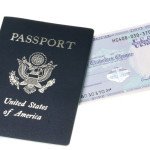
Money Matters
Money matters when travelling are somewhat more complex and need organizing. You need to have easy access to both your money and your company’s (even if it is your own company)! This is being a professional. Even if you have your own business, this will make money matters for both yourself and your business much simpler. If you work for
Money matters when travelling are somewhat more complex and need organizing. You need to have easy access to both your money and your company’s (even if it is your own company)! This is being a professional. Even if you have your own business, this will make money matters for both yourself and your business much simpler. If you work for a company with a travel policy make sure you have read the policy. Be familiar with the detail. It will be highly embarrassing if you need to explain expenses that the company does not cover that you have spent money on. Likewise you will be disappointed if you find out 6 months later that you could have claimed something that you have not.
While every company has a different system for how to report expenses, it is a good idea to record details as you go. Write on the back of each invoice the date, what the expense was for and if it is in another currency what the currency is. Sometimes this is not clearly stated on the front as only the amount may appear or you will see $ but is it $US or $A or $S?. If you are entertaining customers you will also want to write the names of the customers and other employees who attended. This way you will have all the details that will most likely be required when you complete your expense claim. After 2 weeks international travel, the key contacts will be easy but remembering the 6 other Spanish or Chinese customers’ names may not be so simple!!
If you work for yourself, these will be the kind of details your financier or accountant will require. They will need this information to manage your business accounts. Remember that in some countries there are tax laws which you will need to be familiar with around what and how expenses need to be claimed. These will be incorporated into the travel policy if you work for a major company.
If you work for a major company, get your expense claim in on time even if you are traveling internationally. If the regular date for completing this is while you are away, take a copy of the expense claim form with you (it is probably available electronically) and complete it. Worse case, you can scan and email the form and let your manager and the appropriate person in the finance department know that you will give them the receipts when you return. In some companies expenses are completed online but there will always be a need to submit receipts.
Some companies and the taxation departments of some countries also require that you keep a log while you are overseas. This may incorporate a daily diary of your meetings, who they were with and where you stayed. This is quite easy these days with electronic diary systems but be familiar with the requirements. They will also be covered in the travel policy. It is much easy to do this as you travel, than try to figure it out when you return.
Make sure that your Travel File (see Your Infrastructure) has the most updated phone number and address details on it. You may move house, your company may move offices or you may move to a different office of the same company. In all these cases, the address will change and the phone number may change.
Make sure if any of these details change that you or your assistant has notified the bank/credit/charge card company.
Keeping your personal expenses separate to your business expenses will make managing the expenses much simpler.
Especially when you are traveling internationally it is critical that your business and personal expenses are separately managed as you will often have the added complexity of dealing in more than one currency.




